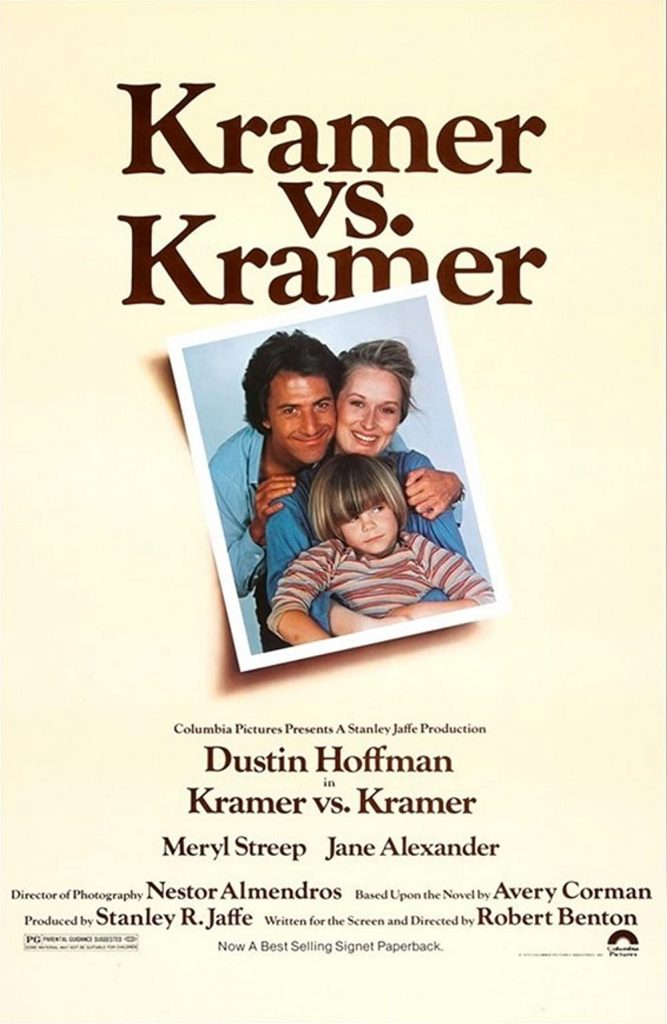
Dustin Hoffman isn’t just an actor. When he works, the film becomes all encompassing, and in the 1970s he was on a roll.
He wouldn’t just play a part. He studies the part. He fights over scenes. He rewrites scripts. He does everything they tell actors not to do. Check out Tootsie to see the all too real scene between Hoffman and Albert Brooks about how hard his character is to work with. That was reality for Hoffman.
Hoffman at this point was going to quit the film industry. His last film went over schedule and budget because of him and people were vowing to never work with him again. He changed the ending in “Marathon Man” and demanded script rewrites in film after film.
That’s exactly what producer Stanley Jaffe and writer/director Robert Benton were looking for. In “Kramer vs. Kramer”, Hoffman and co-star Meryl Streep were allowed to rewrite their characters, much of the script and improvise scenes.
Made sense. Hoffman was going through a divorce himself and Streep recently lost her fiancé to cancer. Both brought real emotional depth to a script that Hoffman thought needed major changes.
“Kramer vs. Kramer” is a movie that found its moment. Ten years earlier, it probably couldn’t have been made. Ten years later, I don’t know if it would’ve found an audience. But the late 70s were a time of societal shift with the view of male and female roles in society. The divorce rate doubled from 1970 to when the film was released. This was an experience that was extraordinarily relatable.
Hoffman allows himself to be completely dislikable. He shows the dourness and anger of a man facing failure. His failed marriage, his ineptness at raising his child which he apparently left totally in the hands of his wife, and his inability to keep a career going while also being a parent – these aren’t attractive, star-making scenes. But Hoffman wanted this to be a real example of what he was experiencing in his own real-life divorce.
Benton’s directing is excellent. All the pacing, angles and choices are enveloping. Streep does what would seem as the worst action, abandoning her child, and comes out sympathetic. Her courtroom performance was mostly her work, her writing. Hoffman loses that competition. There are actually two sides to every divorce. What a curveball!
“Kramer vs. Kramer” is a movie that breathes and moves and lives. Treat yourself and give it another take.
The Highlight Reel
You must see the “ice cream” scene battle between father and son. It came out of improvisation. This scene was not in a script. Hoffman came up with it on set one day. It’s one of the most dramatic and emotional in the film. Great work by the actors but even better work by the director in being open to things like this.
 7.8
7.8

Photos
See all photos >>






